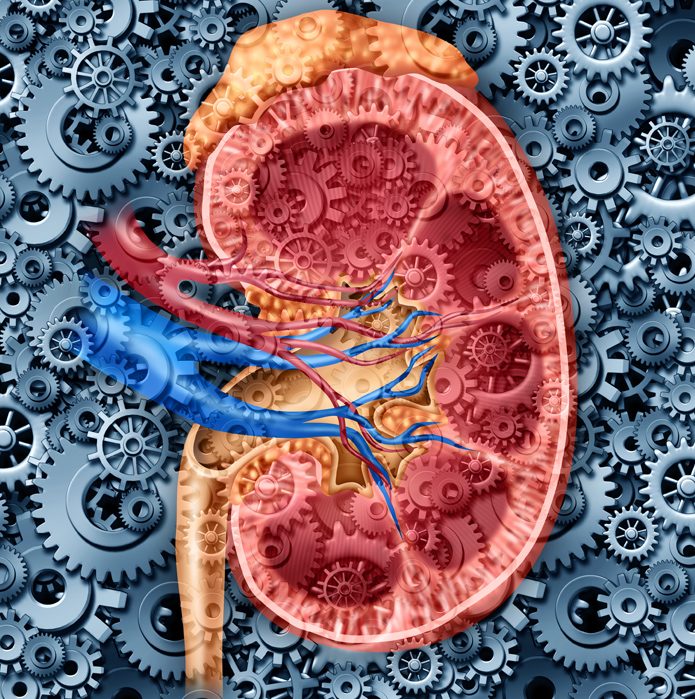KIDNEY FUNCTION BASICS
Your kidneys clean waste and extra fluid from your blood, they are often referred to as the world’s hardest-working, most elaborate filtering machine. Most people have two kidneys located on either side of the spine. Each kidney is typically about the size of a fist.
Like many other organs in the human body, the kidneys have extra capacity (redundancy), thus allowing people with only one kidney to have normal kidney function.
Major Functions
To help remember the major functions of the kidney, we will use a four-point mnemonic: WAVE – Waste, Acid/Base, Volume, Endocrine (dealing with hormones).
WASTE – The kidneys clean waste products from the blood.
ACID/BASE and ELECTROLYTE BALANCE – The kidneys assist acid/base balance in the blood by excreting acid and generating bicarbonate. They also work to maintain normal levels of important electrolytes.
VOLUME – The kidneys balance the amount of salt (Na+) and water in the body.
ENDOCRINE – Hormones.
The kidney is made up of many integrated parts. Simply stated, the blood passes through the kidney nephron—the basic functional unit of the kidney—comprised of glomeruli and tubules. There are about 10,000 nephrons in each of the two kidneys.
A clear filtrate is formed, most of which is reabsorbed by the tubules. Excess fluid along with waste products then passes into the ureters—tubes connecting the kidneys to the bladder. The bladder is a muscular sac where the fluid pools continuously until a person voids (urinates) through a tube called a urethra.



